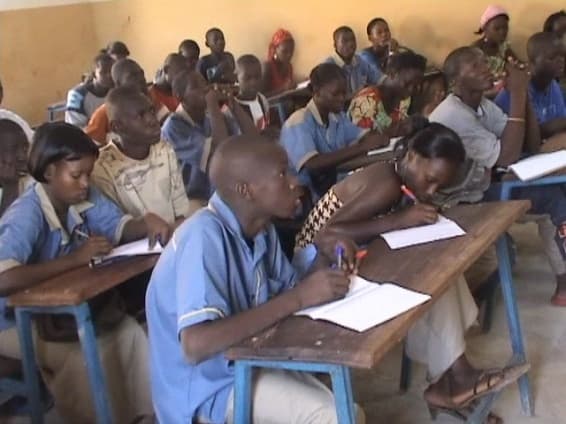YAOUNDÉ, Cameroon – A government plan in the African nation of Mali to remove state support for Catholic schools could harm inter-religious dialogue in the Sahel country, according to a leading Catholic charity.
Catholic schools have existed in Mali even before the country gained independence from France in 1960. White missionaries set up schools in areas like Kita, Timbuktu and Segou between 1889 and 1904.
In 1972, the Malian government signed an agreement with the Catholic Church to subsidize 80 percent of teachers’ salaries.
The government now says beginning next year, those subsidies will be removed. Among other things, the government has been expressing worries about the rising cost of the subsidies amid the country’s economic hardship.
According to Mali’s Prime Minister, Choguel Kokala Maiga, the country faces a serious security crisis amid dwindling state resources and therefore it is necessary to ensure greater accountability in the use of state resources.
RELATED: Catholic bishops in Mali express sorrow over Bamako terror attacks
“We need to know where the subsidies are going, especially given the lack of funding from donors and the exponential growth of schools of all kinds, some of which have been set up with false papers or even by civil servants’, the prime minister said.
He added that the country’s new Constitution requires strict application of secularism.
“It is difficult to subsidize some schools at the expense of others,” he said.
Mali is 90 percent Muslim and just 5 percent Christian, who are mostly Catholic.
Maria Lozano, Director of Pontifical charity Aid to the Church in Need International Press and Media Department, expressed concern that the government’s plan to remove subsidies effective from the 2025/26 academic year puts Catholic education in the country at risk, “potentially harming the holistic education of young people and weakening ties of understanding and respect between religious communities.”
Catholic authorities in Mali say the subsidy removal could lead to the dismissal of about 2000 Catholic school teachers in Mali.
Lozano said the very idea that such subsidies will be removed is “deeply concerning,”
“These institutions not only provide high-quality education but also play a crucial role in fostering interreligious dialogue and peaceful coexistence in a country where 80% of students in Catholic schools are Muslim,” she told Crux.
Mali has 138 Catholic schools with 40,000 students. Removing such subsidies could lead to mass unemployment among teachers and disrupt the education of thousands of students, Lozano argued.
“The removal of these subsidies puts the future of Catholic schools at serious risk, potentially harming the holistic education of young people and weakening ties of understanding and respect between religious communities. In a nation facing significant challenges due to rising extremism and instability since 2012, it is vital to support institutions that promote peace and reconciliation,” she said.
Since 2012, Mali has witnessed an influx of fundamentalists and terrorists, threatening the peaceful co-existence of religions.
ACN quotes its Mali project partner as saying that Catholic schools offer “a genuine chance for Christian-Muslim dialogue, for friendships and the building of strong and solid brotherly relationships between Malian citizens.”
“The Catholic Church is trying at all levels, above all in education, to make its contribution towards the restoration of peace, reconciliation, and coexistence,” said the ACN partner, who would rather not be named for security reasons.
“In fact, 80 percent of the children in our schools are Muslims, while Christians make up only three percent of Mali’s population. Muslims value Catholic schools highly because of the quality of the teaching, which offers holistic human formation,” said the ACN partner.
With subsidies frozen, Lozano is urging the international community to do its part.
“The international community and support organizations must urgently explore ways to assist Catholic schools in Mali to ensure they can continue their essential role in society,” she told Crux.
“At the same time, constructive dialogue with the Malian government should emphasize that Christian institutions contribute positively to the nation’s stability and progress, making their continued operation vital for Mali’s future: The Catholic Church in the Sahel is part of the solution not of the problem,” she said.













